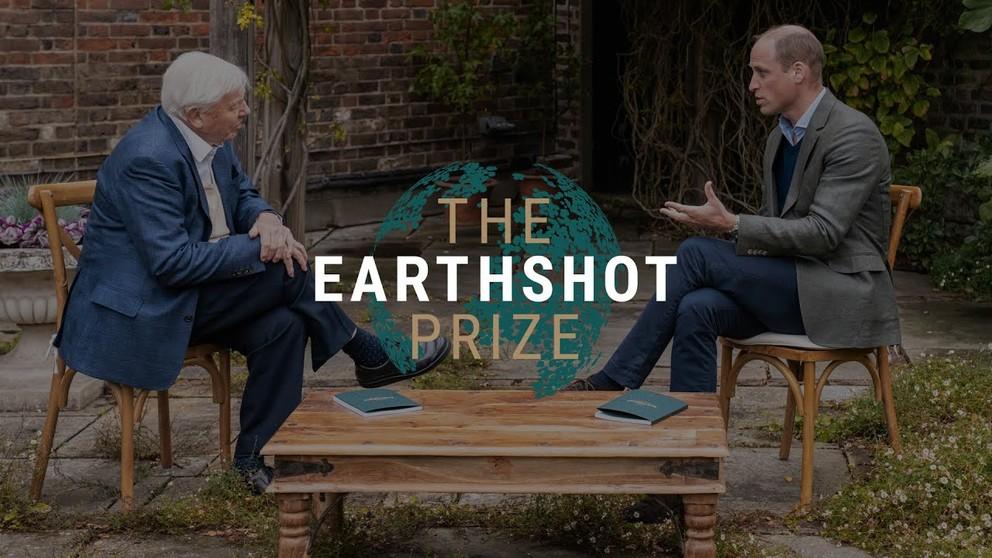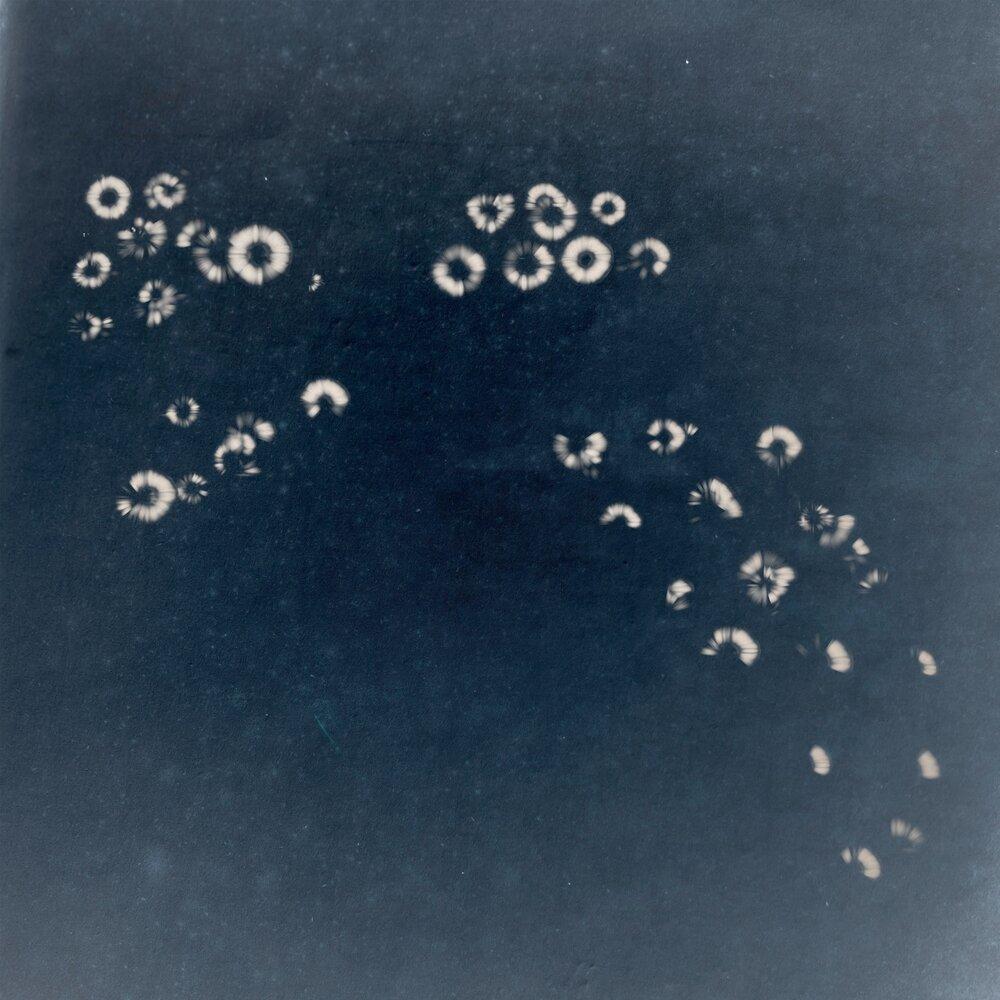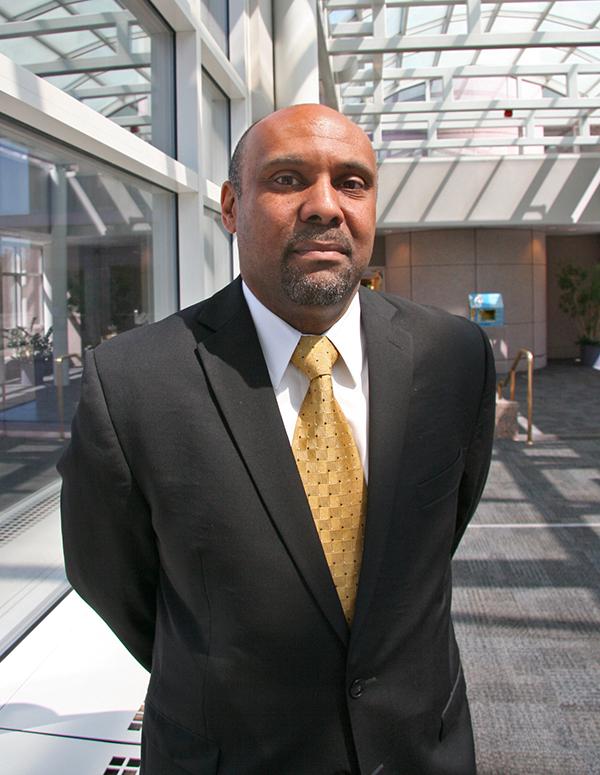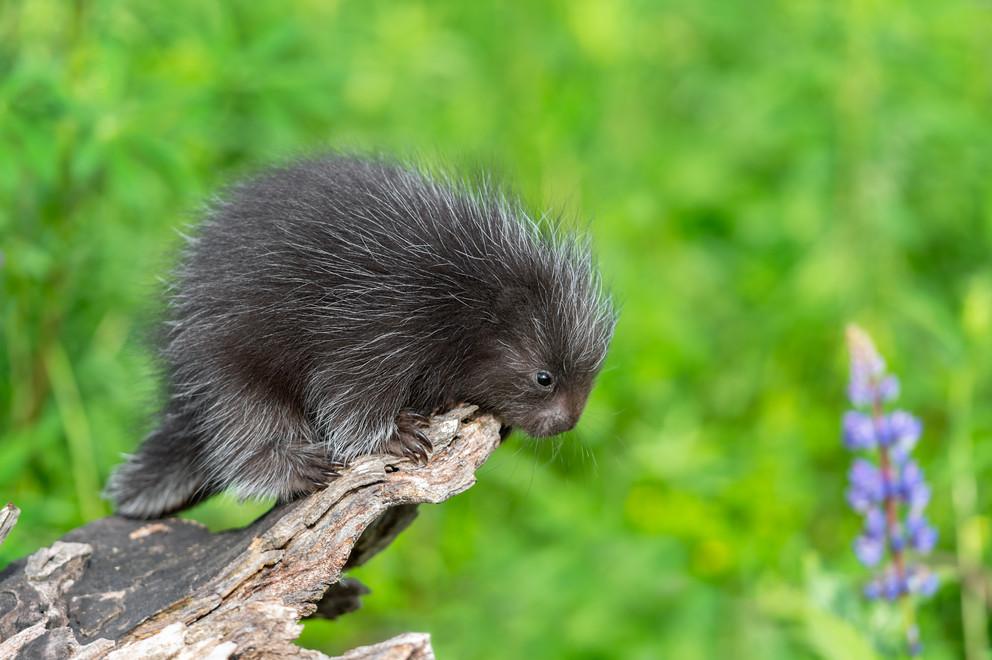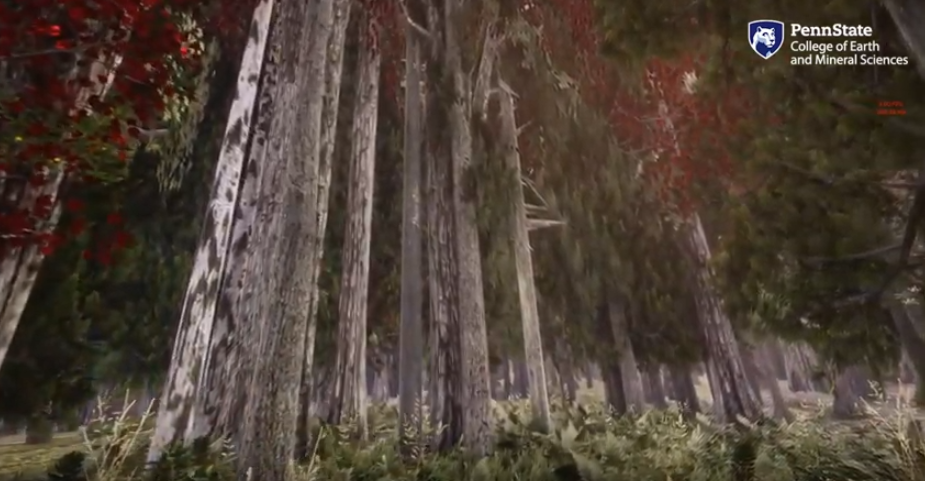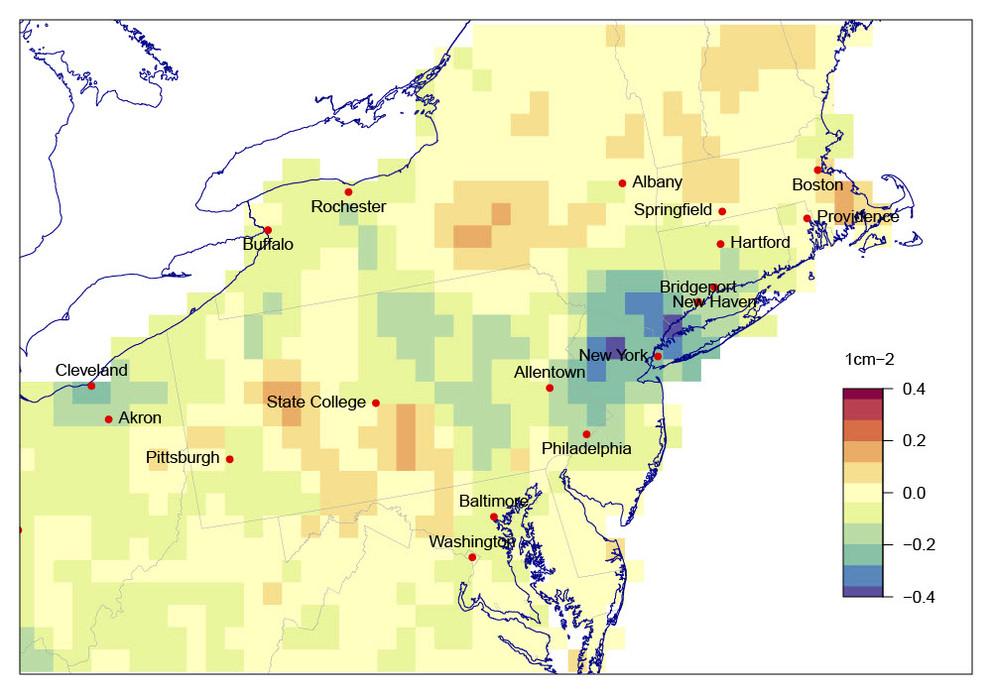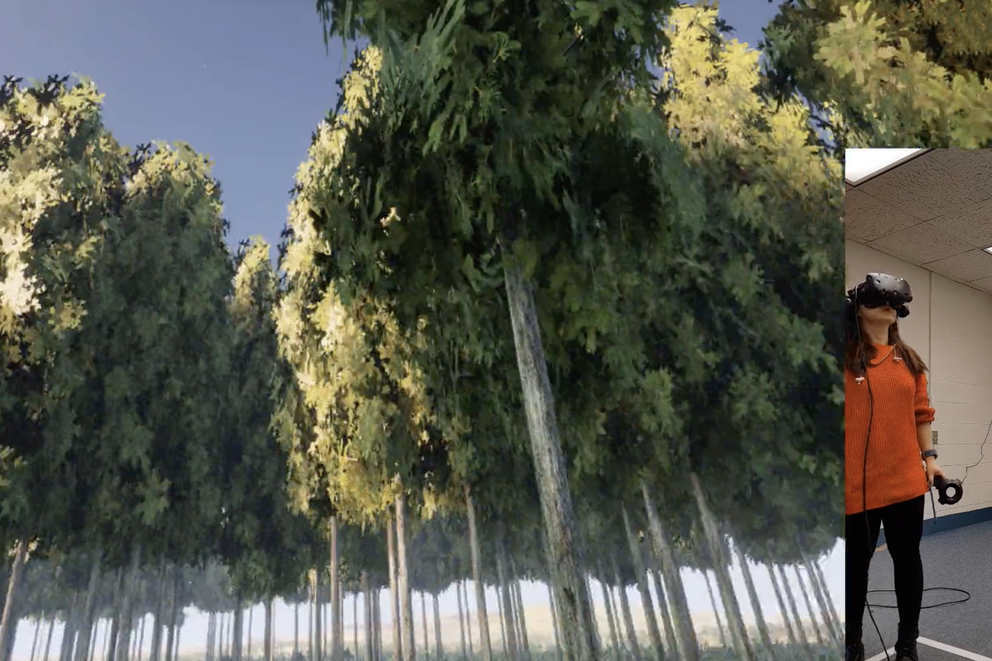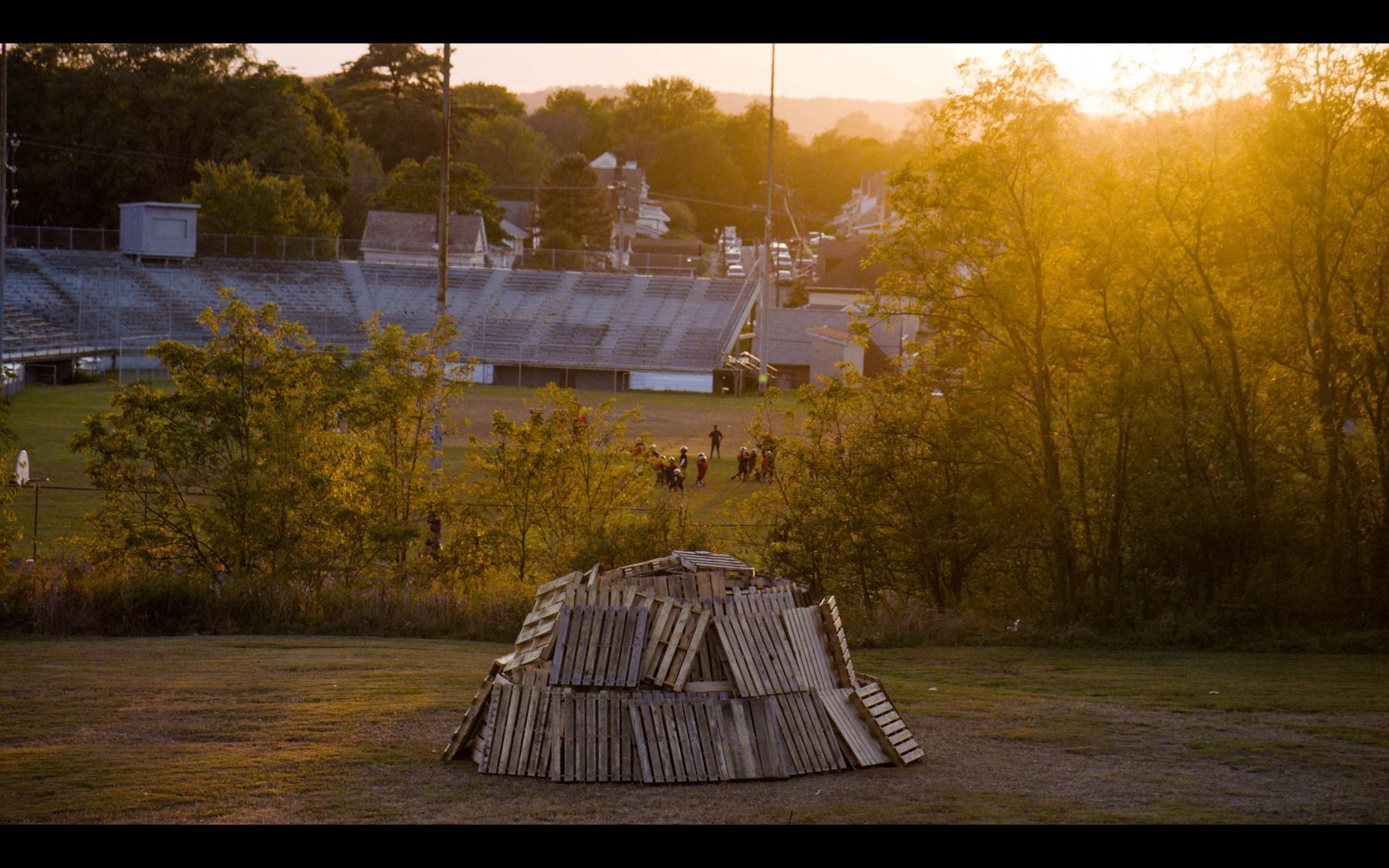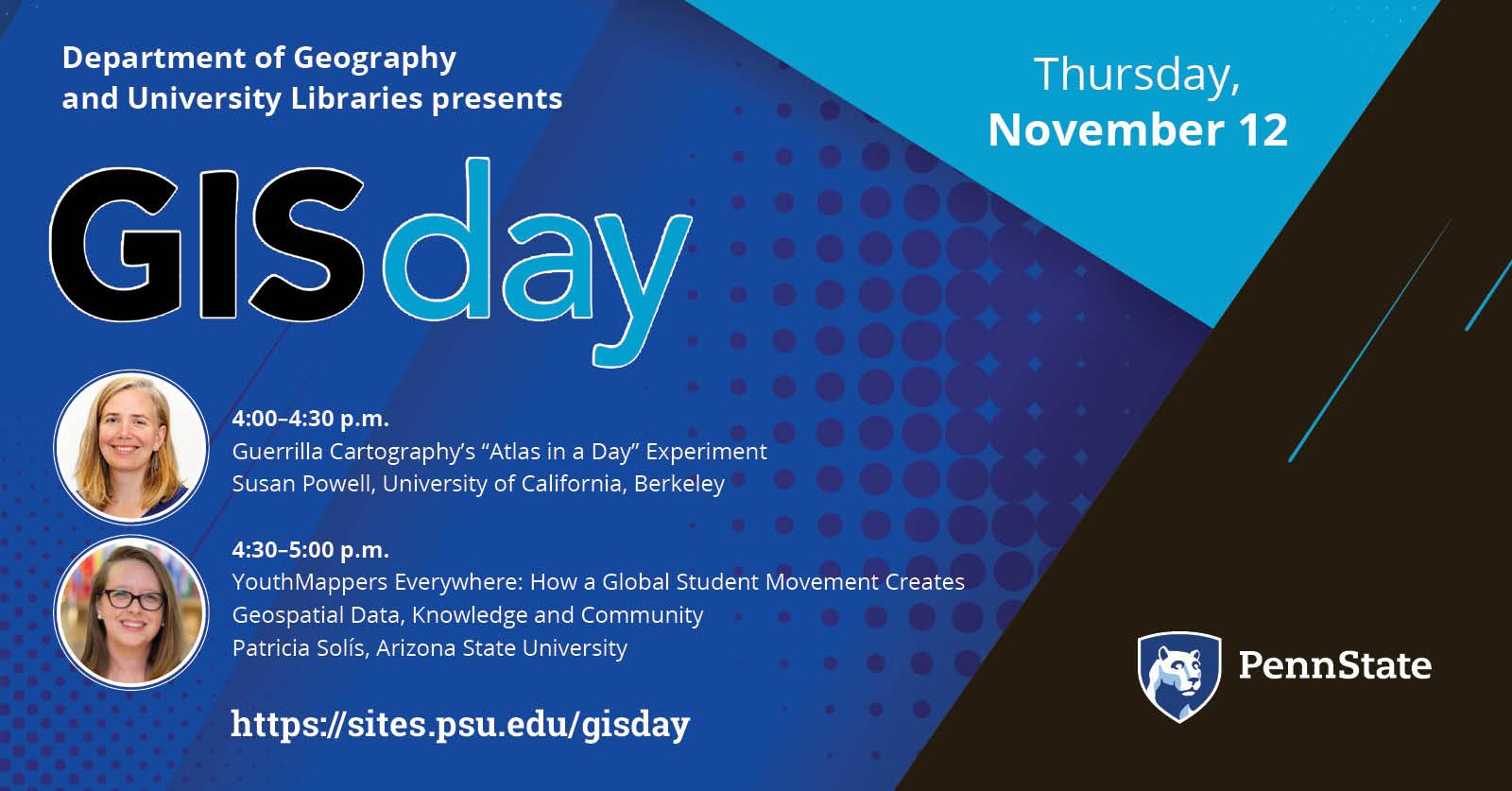Penn State was selected as an official nominator for the Earthshot Prize, a competition aimed at identifying the most promising solutions to environmental challenges. Faculty and staff are encouraged to either self-nominate or to nominate other researchers or projects that they see as strong examples of promising solutions. The internal deadline to submit expressions of interest is Thursday, Dec. 17.
“We are looking for the best and brightest projects and ideas that Penn State has to offer,” said Erica Smithwick, official nominator for the University. “The Earthshot Prize is an opportunity for Penn State to work collaboratively and nominate projects that could truly change our world for the better.”
There is a backstory to this map. Between 27 November and 5 December of 2012, several hundred clerks at the Ports of Los Angeles and Long Beach went on strike. Port clerks are responsible for managing the transition of cargo between logistics networks and are essential to the operation of the ports. They also belonged to the International Longshore and Warehouse Union, so the rest of the 10,000 workers at the ports refused to cross the picket line in solidarity with the strikers, effectively shutting down the ports. During a typical day at either one of the ports (which are directly adjacent to each other), only one or two ships sit at anchor waiting to enter the harbour. During the strike, thirteen ships were at anchor at one time, together holding about $650m in cargo, with some waiting several days to unload. The clerks eventually emerged victorious, securing a better contract and assurance that the ports would not outsource their jobs. But it is the time during the work stoppage that my map concerns.
Mapping an immobile object may sound like a simple task. And it is. For the vast majority of their history, maps have, by and large, been static documents. Even dynamic maps usually rely on the assumption that whatever they are representing will remain in a particular state for however long the map is meant to be useful. And yet there is no shortage of maps that represent, suggest, encourage or propose movement. We are familiar with the visual forms that have been used to represent it: lines, arrows, colour gradients and sequences of dashes. Immobile objects (not moving but not necessarily unmovable) also take particular visual forms, typically as discrete shapes, pictograms or labels. But these represent the objects rather than their immobility. So, what is the visual form of immobility? What does the character, duration or intensity of immobility look like? What can we learn from attending to the visualisation of immobility? I begin to explore these questions with the map presented here, and in this essay to accompany it.
Tony Hutchinson wants underrepresented individuals seeking a career in STEM fields to know one thing: He and others just like him have their back.
Hutchinson, who graduated from Penn State in 1990 with a degree in geography, said it’s important for those individuals to know that they have a support network. That comes through mentorship and it comes through programs at Penn State such as the Millennium Scholars Program.
UNIVERSITY PARK, Pa. — The Sustainability Institute at Penn State is hosting transdisciplinary symposia on biodiversity throughout the spring 2021 semester. The virtual series, "Mainstreaming Biodiversity in the Decade of Action," aims to expand collaborative networks and to inspire creative strategies to promote biodiversity in urban, agricultural and natural areas in order to improve human and ecological health and well-being.
New initiatives emerging from this symposium will be supported through a seed grant program funded by the Sustainability Institute and several other Penn State institutes and centers.
UNIVERSITY PARK, Pa. — The effects of climate change are sometimes difficult to grasp, but now a virtual reality forest, created by geographers, can let people walk through a simulated forest of today and see what various futures may hold for the trees.
"The main problem that needs to be addressed is that climate change is abstract," said Alexander Klippel, professor of geography, Penn State. "Its meaning only unfolds in 10, 15 or 100 years. It is very hard for people to understand and plan and make decisions."
UNIVERSITY PARK, Pa. — The measures instituted in April to help curb the spread of COVID-19 across the United States may hold clues for improving air quality, according to researchers.
The scientists examined the pandemic’s effects on two key pollutants – nitrogen dioxide and fine particulate matter -– and human mobility. They found that as individuals limited their travel, nitrogen dioxide levels fell significantly while levels of fine particulate matter rose in certain parts of the country. They report their findings in the Bulletin of Atmospheric Science and Technology.
UNIVERSITY PARK, Pa. — For many, seeing is believing. That is what Alex Klippel and his team have been investing in since the creation of the Penn State's Center for Immersive Experiences. It is also what some energy and environment researchers have been exploring to better communicate their science.
“Immersive technologies extend opportunities to not only see changes in the environment, but also to experience them,” said Klippel, director of the Center for Immersive Experiences. “We can advance understanding and our ability to communicate scientific facts about the environment to a different level by creating embodied place-based experiences of remote locations, of places in the past or future.”
UNIVERSITY PARK, Pa. — If you have viewed short documentary films about the 19th amendment on The New York Times website or national monuments on The Washington Post website this year, you have seen the work of Penn State alumna Megan Ruffe, a Schreyer Scholar who graduated in 2013, earning degrees in film production and geography.
Now based in Brooklyn, New York, Ruffe is a co-producer at Florentine Films, Ken Burns’ documentary company.
October 23, 2020
UNIVERSITY PARK, Pa. — Penn State University Libraries will observe GIS Day — an annual event celebrating the technology of geographic information systems (GIS) — with a virtual event from 4 to 5 p.m. on Thursday, Nov. 12.
Penn State GIS Day brings together those who work with GIS, geospatial technologies, remote sensing, maps, and location-based research to foster greater geospatial awareness throughout the University, within the community, and beyond. Both new and experienced users of geospatial information across disciplines are encouraged to participate.
UNIVERSITY PARK, Pa. – The brownish-grey algae that darken the Greenland ice sheet in summer cause the ice to melt faster, but only recently have scientists measured these blooms in the field, and only at few sites. To measure algal blooms across large regions and understand their effects on melting over time, scientists are now turning to space.
“Scientists go into the field and sample one or two spots where these algal blooms occur, but we don’t really know how they change over time or over a large region,” said Shujie Wang, assistant professor of geography at Penn State. “To solve this problem, my research team and I borrowed the methodology used to measure algae in water, which uses ocean color satellites and has a long history.”


